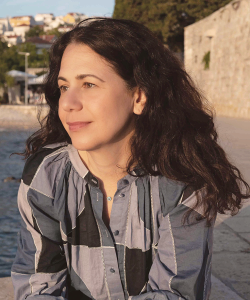Residing in Possibility

Amid political turmoil and momentous life changes, a retreat at the Blue Mountain Center gives the author of The Archer inspiring ideas about how to be an artist—even without writing any new pages.
Jump to navigation Skip to content

Amid political turmoil and momentous life changes, a retreat at the Blue Mountain Center gives the author of The Archer inspiring ideas about how to be an artist—even without writing any new pages.

A fortuitous residency at Jentel gives the author of Incantation: Love Poems for Battle Sites a chance to dream big and forge the first hundred pages of a new collection in just two weeks.

With his second collection, Horses, award-winning poet Jake Skeets shows us how to contemplate the profundity of our interconnected world, holding space for both grief and beauty, the Anthropocene and queer eros.

While promoting her book, an author collects personal stories of shelter and storm, curating an accidental anthology that demonstrates how sharing stories fosters community during a time of climate upheaval.

A novelist explores the decision to name real places in fiction, the way maps circumscribe those places, how locales heavily defined by tourism are susceptible to those projections, and what it means to push against those expectations.